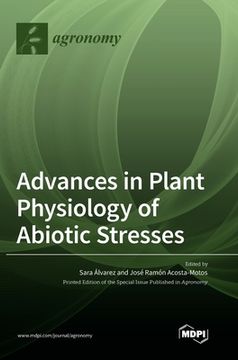Reseña del libro "Advances in Plant Physiology of Abiotic Stresses (en Inglés)"
Plant stress could be defined as any unfavorable condition or substance that can affect or block the metabolism, growth or development of a plant. The response of the plant may vary depending on the frequency and intensity of the stressor, as well as the developmental stage of the plant.Plants, throughout their life cycle, are exposed to a large number of conditions or stressors. Abiotic stress is stress caused by non-living agents. Depending on the nature of the causal agent, it can be divided into physical and chemical. Physical (actually, physical-chemical) stresses include water deficits, salinity (in its osmotic component), temperature extremes (heat, cold, freezing), excessive or insufficient irradiation, anaerobiosis caused by waterlogging or flooding, mechanical stress caused by wind or excessive soil compaction and stress induced by wounds or injuries. Chemical stress is caused by salinity (in its ionic or toxic component), by the lack of mineral elements and by environmental pollutants such as sulphur dioxide (SO2), nitrogen oxides (NOx), chlorofluorocarbon compounds (CFCs), ozone (O3) and metals.The abiotic stresses that most negatively affect growth and production are probably drought, salt stress and temperature stress (high and low temperatures), all of which are associated with climate change.

